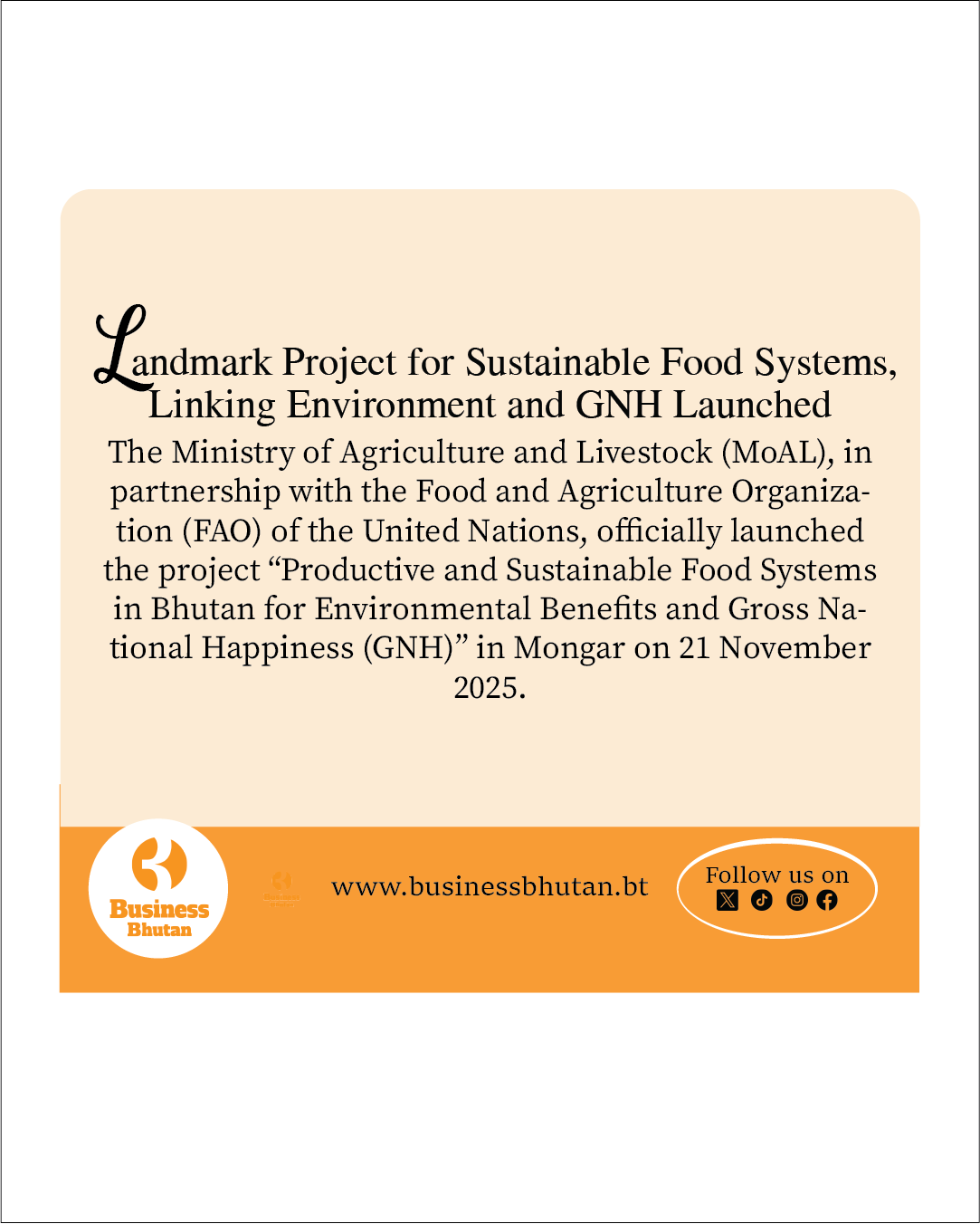Bhutan’s hotel and tourism sector has emerged as the largest beneficiary of the country’s loan deferment program, highlighting both the sector’s pandemic-induced vulnerabilities and its critical role in the national economy. According to official data, tourism accounted for the bulk of loans deferred under Monetary Measure IV (MMIV) and its subsequent extension through June 2025.
As of June 2025, financial institutions nationwide had deferred a total of Nu 29.6 billion across 4,827 accounts. Of this, the hotel and tourism sector alone accounted for Nu 11.7 billion across 477 accounts, making it the single largest sector under deferment. Three-star hotels led the sector, with 185 accounts totaling Nu 6.4 billion, followed by ten five-star and above hotels (Nu 1.6 billion) and nine four-star hotels (Nu 870.2 million). Other tourism subsectors also benefited, including 104 restaurants and bars (Nu 156 million), 41 travel and ticketing agencies (Nu 294 million), and 22 homestays and guesthouses (Nu 208 million).
Beyond tourism, agriculture and livestock saw deferments across 2,338 accounts totaling Nu 755 million, while trade and commerce recorded 603 accounts worth Nu 3.2 billion. In total, the MMIV program (up to June 2024) deferred 914 accounts worth Nu 20.6 billion, with an additional 477 accounts totaling Nu 11.7 billion added in the final phase through June 2025.
Transitioning from Deferment to Repayment
With the deferment
program concluding in June 2025, the Royal Monetary Authority (RMA) has introduced seven restructuring measures to support borrowers in transitioning to normal repayment schedules. These measures are part of Bhutan’s broader loan restructuring framework, designed to provide long-term flexibility while safeguarding financial stability.
Key post-deferment initiatives include, loan restructuring facilities, where borrowers may be assessed for eligibility to reschedule repayments, with a three-month transition period (July–September 2025) and principal-only payment option, where borrowers can pay only the principal for one year, with interest capitalized thereafter, for loans exceeding sanctioned limits,.
There is also the one-time settlement rebates, where Non-performing loan (NPL) borrowers are offered interest rebates—90% for full cash settlement, 45% for 50% repayment, and 27% if the loan is transferred to a new borrower. This rebate window closes on December 31, 2025.
An RMA official highlighted the uniqueness of Bhutan’s approach:
“Bhutan is the only country in the world to have extended loan deferments for four to five years. While this cannot continue indefinitely, the new restructuring measures provide a practical path forward for borrowers and lenders alike.”
Implications
The dominance of tourism in the deferment portfolio underscores the sector’s sensitivity to external shocks, particularly the COVID-19 pandemic. While deferments were crucial to cushion hotels, travel agencies, and related businesses, the focus is now shifting to repayment capacity and long-term financial discipline. Early data indicate signs of improvement as tourism activity rebounds, but the RMA cautions that sustaining recovery will require both sectoral resilience and disciplined lending practices.
From a business perspective, the post-deferment phase will serve as a litmus test for Bhutan’s financial sector, particularly in how well banks and borrowers adapt to resumed obligations. Tourism’s recovery trajectory will not only reflect the country’s broader post-pandemic economic rebound but also signal the robustness of its banking system in managing risk, liquidity, and credit quality.
Strategic Takeaways
The hotel and tourism sector’s high exposure to deferred loans serves as a critical indicator of both financial sector stability and Bhutan’s broader economic resilience. As the largest recipient of loan deferments during the pandemic and recovery period, the sector reflects the health of lending practices, the ability of businesses to withstand external shocks, and the effectiveness of central bank interventions.
The RMA’s loan restructuring measures strike a careful balance—providing necessary relief to businesses while safeguarding banks against systemic risk. By tailoring repayment plans and offering principal-only payment options or interest rebates, the central bank mitigates default risk without stifling enterprise recovery.
Emphasizing repayment capacity and flexible repayment options allows Bhutan to move from emergency financial relief toward long-term economic stability. This approach ensures that borrowers can gradually normalize obligations without jeopardizing the health of financial institutions, creating a smoother pathway to sustainable growth.
The post-deferment phase provides a critical lens through which to assess the interplay between sector-specific vulnerabilities and systemic financial stability. Given its high exposure to deferred loans, the hotel and tourism sector effectively functions as a barometer for Bhutan’s economic and banking health. Strong repayment trends in this sector will signal not only the resilience of tourism businesses but also the capacity of financial institutions to manage risk and adapt to shocks, instilling confidence in the broader economy. Conversely, any resurgence of defaults could expose underlying weaknesses, highlighting areas where lending practices, risk assessment, or sectoral support mechanisms may need strengthening.
This period also presents a strategic opportunity for financial institutions. By leveraging insights from the deferment experience, banks can innovate in credit assessment, diversify portfolios, and refine sector-specific lending strategies, ensuring that they are better equipped to manage future shocks. The lessons learned from tourism’s recovery can inform risk modeling, collateral management, and the design of flexible repayment schemes across other high-risk sectors.
For Bhutan, the hotel and tourism sector’s repayment performance will serve as a leading economic indicator, reflecting the effectiveness of the central bank’s proactive measures and the resilience of the national economy.
Sherab Dorji
From Thimphu




![Fresh Beginnings: Pasakha Vendors Gear Up for New Vegetable Market - Duplicate - [#16963] Fresh Beginnings: Pasakha Vendors Gear Up for New Vegetable Market - Duplicate - [#16963]](https://businessbhutan.bt/wp-content/uploads/2025/11/Asset-200.png)











